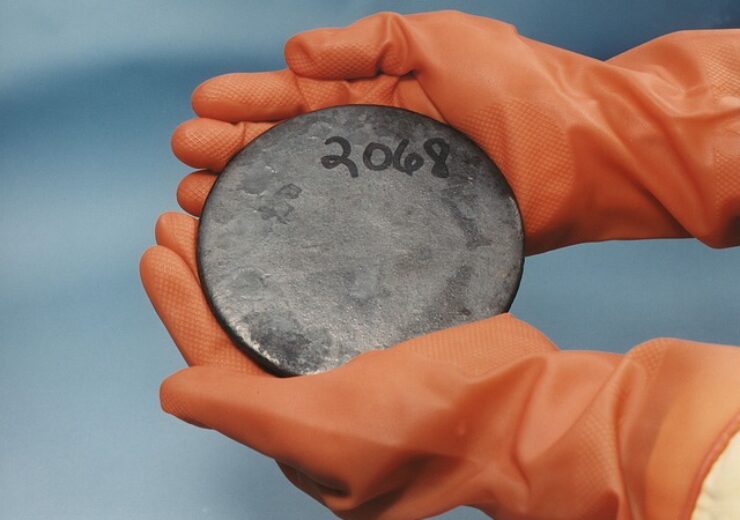New Request for Proposals to Establish Domestic Supply Chain of High-Assay Low-Enriched Uranium Required for Smaller, More Versatile Reactors Will Increase Energy Security and Strengthen U.S. Competitiveness

DOE Announces Next Steps to Build Domestic Uranium Supply. (Credit: WikiImages from Pixabay)
In support of President Biden’s Investing in America agenda, today the U.S. Department of Energy (DOE) issued a request for proposals (RFP) for uranium enrichment services to help establish a reliable domestic supply of fuels using high-assay low-enriched uranium (HALEU)—a crucial material needed to deploy advanced nuclear reactors, which will help reach President Biden’s goal of net-zero emissions by 2050, increase energy security, create good-paying jobs, and strengthen U.S. economic competitiveness. Currently, HALEU is not commercially available from U.S.-based suppliers, and boosting domestic supply could spur the development and deployment of advanced reactors in the United States.
“Nuclear energy currently provides almost half of the nation’s carbon-free power, and it will continue to play a significant part in transitioning to a clean energy future,” said U.S. Secretary of Energy Jennifer M. Granholm. “President Biden’s Investing in America is strengthening our national and energy security through the domestic buildup of a robust HALEU supply chain, helping bring advanced reactors online in time to combat the climate crisis.”
“The Biden-Harris Administration knows that nuclear energy is essential to accelerating America’s clean energy future,” said Assistant to the President and National Climate Advisor Ali Zaidi. “Boosting our domestic uranium supply won’t just advance President Biden’s historic climate agenda, but also increase America’s energy security, create good-paying union jobs, and strengthen our economic competitiveness. The path to greater energy security and more climate solutions runs through investments like these, being made at historic scale by President Biden. It’s good news for our economy, for America’s union workforce, and for our planet.”
In total, President Biden’s Inflation Reduction Act will provide up to $500 million for HALEU enrichment contracts selected through this RFP
and a separate one, released in November, for services to deconvert the uranium enriched through this RFP into metal, oxide, and other forms to be used as fuel for advanced reactors.
Nuclear power is America’s largest source of clean energy and provides firm, reliable, and safe power. Advanced nuclear power designs using HALEU fuels represent a critical set of technologies that can help to reach U.S. emissions targets and contribute to America’s recent pledge with 21 other countries to triple nuclear power globally by 2050.
The existing U.S. fleet of reactors runs on uranium fuel that is enriched up to five percent with uranium-235—the main fissile isotope that produces energy during a chain reaction. However, most U.S. advanced reactors require HALEU, which is enriched between 5% to 20%, to achieve smaller and more versatile designs with the highest standards of safety, security, and nonproliferation. HALEU will also allow developers to optimize their systems for longer life cores, increased efficiencies and better fuel utilization.
DOE’s Office of Nuclear Energy plans to award one or more contracts to produce HALEU from domestic uranium enrichment capabilities. Once enriched, the HALEU material will be stored on site until there is a need to ship it to deconverters.
Under the HALEU enrichment contracts, which have a maximum duration of 10 years, the government assures each contractor a minimum order value of $2 million, to be fulfilled over the term of the contract. Enrichment and storage activities must occur in the continental United States and comply with the National Environmental Policy Act. Proposals are due by 5 p.m. MST on March 8. This RFP incorporated industry feedback received on a draft version issued in June.
DOE is supporting several activities to expand the HALEU supply chain for advanced commercial reactors, including recycling spent nuclear fuel from government-owned research reactors. In November, DOE reached a key milestone under its HALEU Demonstration project when a company produced the nation’s first 20 kilograms of HALEU, providing a first of its kind production in the United States in more than 70 years. DOE is also working with like-minded countries to catalyze public and private sector investments that will expand global uranium enrichment and conversion capacity over the next three years and establish a resilient uranium supply market that is free from Russian influence. Together, the United States, Canada, France, Japan, and the United Kingdom have announced collective plans to mobilize $4.2 billion in government-led spending to develop safe and secure nuclear energy supply chains.
Source: Company Press Release
